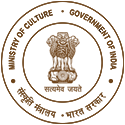Ethics, Economy and Ecology are necessary for Sustainable Development: Shri Ram Lal
“We have to thank our villages, our villagers for their culture, their self-sustained methodologies and their belief in their traditional systems that has proved a boon during this pandemic”, said Shri Ram Lalji, All India Chief Coordinator of the Rashtriya Swayam Sevak Sangh while addressing the webinar on “Empowered Village – Empowered Nation” organised by Gandhi Smriti and Darshan Samiti in the light of Covid -19 and the present scenario on June 26, 2020.
Applauding the efforts of the villages in handling the pandemic despite the influx of migrants from the cities to their respective homes in the villages, Shri Ram Lal said, “We have to pay respect to the dignity of labour”, adding, “Despite their hardships and sufferings, the people who left cities for their villages never showed any sign of revolt in their journey back home”.
Reiterating what Shri Sita Ram Gupta, CEO of Lupin Human Welfare Organisation (LHWO) and Shri Narendra Meherotra of Mission Samriddhi had said, Shri Ram Lal further stated that the pandemic has made this new generation and the youth of today realise the essence of service. “This generation has started living together with their family; they have been more aware of ‘swadeshi’ (local made) products and ‘swavlambhan’ (self-reliant)”, adding, “They have now become alert about the three E’s – Ethics Ecology and Economy which are necessary for sustainable development”.
Sharing the ideas of Sarvodaya, Antodaya of Mahatma Gandhi, Acharya Vinoba Bhawe, Pt. Deen Dayala Upadhyaya, Shri Nanaji Deshmukh, he said that while everybody spoke of development, their key idea was reflected in reaching out to the last man in the society and going back to the villages where there are ample opportunities waiting there for youth to be engaged to reduce the gap of unemployment. He said that the challenge that has been thrown upon all of us today because of the pandemic, is also an opportunity before us to make India self-reliant or what he called ‘atmanirbhar’ for he believed that this is the true religion of India, which he said, “Bharat me dharm ka arth kartavya hai”.
Shri Sita Ram Gupta in his address present various success stories of the initiatives taken by LHWO in different places such as Dhule, Maharashtra; Nandurbar, Maharashtra; Indore, Bharatpur, Vidhisha where a little effort in engaging the villagers in raising their confidence has generated great results for once struggling women becoming entrepreneurs and has helped in employment generation. Expressing his concern that there needs to be a paradigm shift in our thought process to reduce, what he felt, “The mismatch of what we are and what we think”.
He further called upon tapping the untapped potential of India, in order to address the issues of poverty, malnutrition and unemployment and thereby raise the ‘Human Development Index’. “We have to have critical thinking on how to convert problems into opportunity”, he said and hoped that a cabinet committee on agriculture is formed by the Government.
Shri Sita Ram Gupta further highlighted the need for strengthening the three K’s – Kisan (farmers), Karigar (artisans) and Kamgar (labourer) and ensure dignity to them for which he suggested the convergence of corporate sectors with the government and hoped that the trinity – corporate, civil society and government together will be able to generate self-sustained model of employment and fulfil the dream of an Atmanirbhar Bharat.
Shri Narendra Mehrotra of Mission Samriddhi who was another key speaker in his address highlighted the traditional Indian system of governance where there was unison among what he termed as kisan-karigar-udyami (farmer-artisan-entrepreneur). Speaking about the concept of true democracy where one has the right over resources, he shared that this traditional system provided both the right and responsibility in equal footing.
While sharing his thoughts on the advent of the British and how the Indian economy was plundered, Shri Narendra Mehrotra echoed the sentiments of Shri Sita Ram Gupta who he said had offered practical solutions. He also shared some of the success stories of Mission Samriddhi’s rural development schemes with the Government and shared that the experiences in the tribal region of Yavatmal in Maharashtra and Wardha. He also stressed for development in the local/rural areas and shared his thoughts of Mahatma Gandhi’s vision of Gram Swaraj.
Earlier, the webinar began with the welcome address by Director GSDS, Shri Dipanker Shri Gyan who also shared his inputs on the webinar. Almost 35 participants from Bihar, Lucknow, Delhi, Rajasthan took part in the webinar.
Webinar on Empowered Village : Empowered Nation
Webinar












